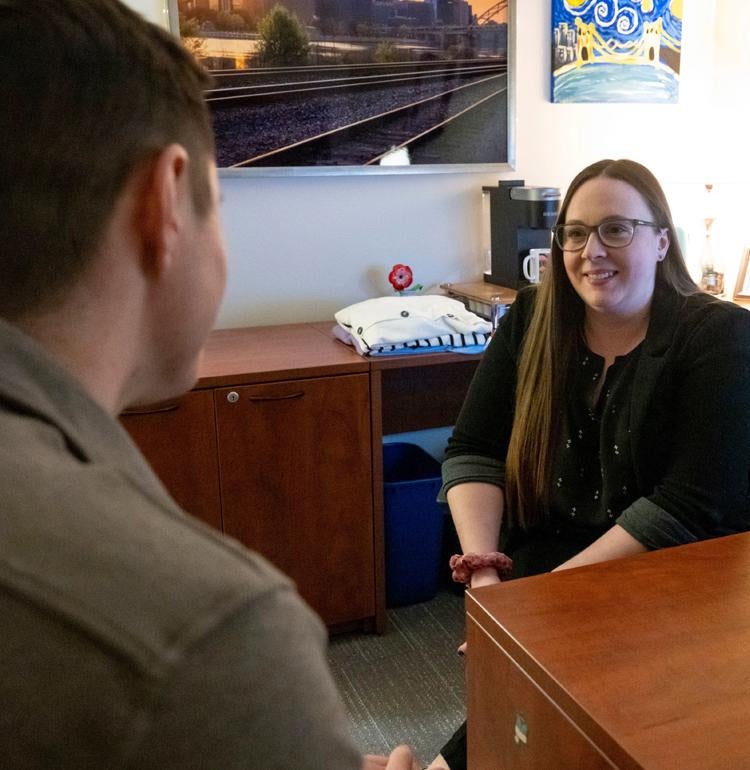The University of Pittsburgh School of Law's juris doctor (JD) program offers a solid foundation in legal education and many specializations applied to contemporary issues, including international and comparative law, environmental and energy law, health law, intellectual property, technology, and innovation law.
You can also pursue a JD and a second master’s degree at another Pitt school—in areas such as bioethics, business, public health, and social work—or at nearby Carnegie Mellon University in less time than it would typically take to complete two consecutive degrees.
Assist the public through work with a Pitt Law clinic (health law, elder law, and environmental law and policy, among others). Serve as a full-time extern on Capitol Hill or throughout Washington, D.C., as part of the Semester in D.C. Program—intern with a federal agency, nonprofit, or corporation. Participate in a national or international moot court competition.
Learning Outcomes
1. Legal Analysis, Research, and Reasoning: Given a complex factual situation, students will be able to identify and articulate the legal issues the situation presents; choose and implement an effective research strategy, selecting and employing authoritative resources to locate relevant legal authority; identify, accurately formulate, and apply the rules or principles of law pertinent to the situation; draw and explain relevant factual analogies and distinctions; develop, elaborate, and evaluate legal theories relevant to the situation; and critically examine the rules, principles, and reasoning upon which legal arguments are based.
2. Problem-Solving: Students will be able to analyze legal problems by identifying the parties’ common and competing goals and perspectives, the legal, institutional, and interpersonal settings in which the problem has arisen, the relevant facts, and the legal and policy issues the problem presents. Based on analysis of these factors, the student will be able to develop and evaluate potential solutions and strategies and to design and implement a plan for resolving the problem.
3. Communication: Students will be able to speak and write clearly, logically, effectively, and persuasively in a manner appropriate to the audience, lawyers, non-lawyers, and decision-makers.
4. Knowledge of Substantive and Procedural Law: Students will learn and understand legal doctrine in core areas of law generally regarded as necessary to effective and responsible participation in the legal profession. Students will learn and understand civil, criminal, and administrative procedural law regarded as necessary for effective and responsible participation in the legal process.
5. Professionalism and Ethics: Students will understand and be prepared to conform their actions to the law that governs the conduct of lawyers, including substantive law, procedural law, and the codes of professional responsibility; be attentive to the potential for and able to recognize issues of legal responsibility, professionalism, and ethics and resolve them appropriately; and understand the values of the profession, including the importance of pro bono service and the responsibility to promote justice.
6. Other Professional Skills: Students will develop competency in the skills required of a legal professional, such as interviewing, counseling, negotiation, fact development and analysis, advocacy, document drafting, conflict resolution, organization and time management, interpersonal communication, cultural competency, collaboration, and self-evaluation and reflection. Each student will develop competency in those skills most directly related to the student's planned career path.
